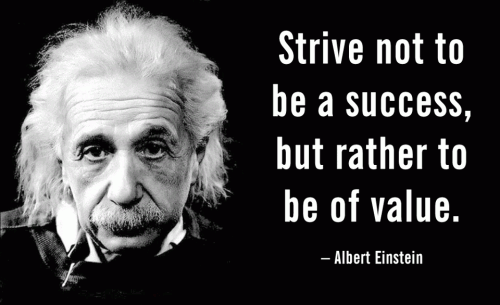As the new year approaches, it's a great opportunity to reflect on the past year and to look forward to what lies ahead. So here is a collection of outstanding posts from 2015. It's an exciting time to be an educator. Innovation, creativity, and growth mindset continue to be important themes. These 10 posts are certain to give more clarity to your work as an educator as we head into the new year.
1. MindshiftKQED - Sir Ken Robinson: Creativity Is In Everything, Especially Teaching.
Ken Robinson's newest book, Creative Schools, was published in April. This excellent post highlights a few of the main points from the book. Creativity is a process of having original ideas that have value. It's about fresh thinking. Creativity is not the opposite of discipline and control. It's not a linear process, but a passion for discovery and learning.
Sir Ken Robinson: Creativity Is In Everything, Especially Teaching
2. Lisa Nielsen: The Innovative Educator - The Teacher Is Not The Most Important Factor When It Comes To Learning
Conventional thinking is that the teacher has the greatest impact on student learning. Although teachers make an impact, Lisa Nielsen exposes the myths taking this thinking to far. She explains that the student is still the most important factor in learning, and if we would design learning with that in mind, we could make incredible progress in education. The questions below help to illustrate the point.
If the answer to any of the below questions is "no," even a great teacher will find their job difficult.
- Does the students care about the topic?
- Does the student want to learn the topic?
- Is the teacher's style compatible with how the student learns best?
- Is the student developmentally ready to learn the topic?
- Is the student fluent in the language of the topic that is being taught?
- Does the student live with his or her parents?
- Does the student live above the poverty line?
- Is the student healthy?
Lisa Nielsen: The Innovative Educator: The Teacher Is Not The Most Important Factor When It Comes To Learning
3. TeachThought - 7 Strategies to Help Students Ask Great Questions
This post was part two of the TeachThought feature on questioning as a strategy for learning.
7 Strategies To Help Students Ask Great Questions
4. A.J. Juliani - Technology Can Transform Education, But Not Without People
As 18,000 educators were descending on Philadelphia for ISTE 2015, A.J. Juliani published this fantastic piece. He writes about the connections with people that are possible now as a result of technology, and that is the most important thing. It's not about the tools available themselves, but how they allow us to connect, build, and grow.
Technology can transform education, but not without people #ISTE2015 - A.J. JULIANI
5. Classroom Q & A with Larry Ferlazzo - Response: Classroom Strategies to Foster a Growth Mindset
Growth mindset continued to be a major topic of discussion in 2015. Larry Ferlazzo published this piece with contributions from growth mindset guru Carol Dweck and a number of reader comments. Dweck gives three things you can do right away in the classroom to influence student mindsets. There is also a great video with a student reflecting and challenges and mistakes.
Response: Classroom Strategies to Foster a Growth Mindset
6. Edutopia - The 8 Minutes That Matter Most
English teacher Brian Sztabnik addresses the most important part of lesson planning, the endings and beginnings. It's so important to create suspense and capture your students interest to keep curiosity and learning at a high level, even beyond the class period. You'll want to try the four strategies for beginning a lesson and four strategies for ending. Great stuff!
The 8 Minutes That Matter Most
7. Bethany Hill - The Time is NOW to Innovate!
When is the right time to innovate? Right now of course! Innovation has been one of the hottest topics of 2015. And the Innovators Mindset by George Couros has fueled the discussion. In this blog post, Beth Hill reflects on how to start the discussion in your school. She reminds us we have to view innovation as a mindset. When we do, we can begin to innovate in every opportunity we have in our school.
The Time is NOW to Innovate!
8. Aaron Hogan - 5 Ways To Spread Optimism in Times of Change
It's not uncommon to encounter resistance to change, but how can we turn negative comments into opportunities for positive growth? Aaron Hogan details five ways to influence the person who is set on responding to every idea with "yeah but" phrases. Responding with optimism is essential for an effective leader.
5 Ways To Spread Optimism in Times of Change - Leading, Learning, Questioning
9. David Geurin - What If Schools Were More Like Google and Starbucks
Warning: Shameless plug alert! Yes, at the risk of self-promotion, I will include one of the top posts from my blog in 2015. But I must credit Eric Sheninger for his inspiration. After spending a day learning with him in Kansas City, I just needed to explore some of the ideas a little further. Can you imagine if we took lessons from some of the most forward thinking companies and applied them to education? Well, that's what I describe in this post.
@DavidGeurin Blog
10. We Are Teachers - The Emojis of Teaching
Perhaps one of the most fun pieces of 2015, this post looks at how emojis can be used to describe the teacher experience, both the ups and the downs of the profession. Every educator will get a good laugh out of this post, and you'll be able to relate I promise.
WeAreTeachers: What These 34 Emojis Really Mean to Teachers
Question: What are some of your favorite blog posts from 2015? Share a link in the comment section or give a shout out to your favorite blogger on Twitter or Facebook.



